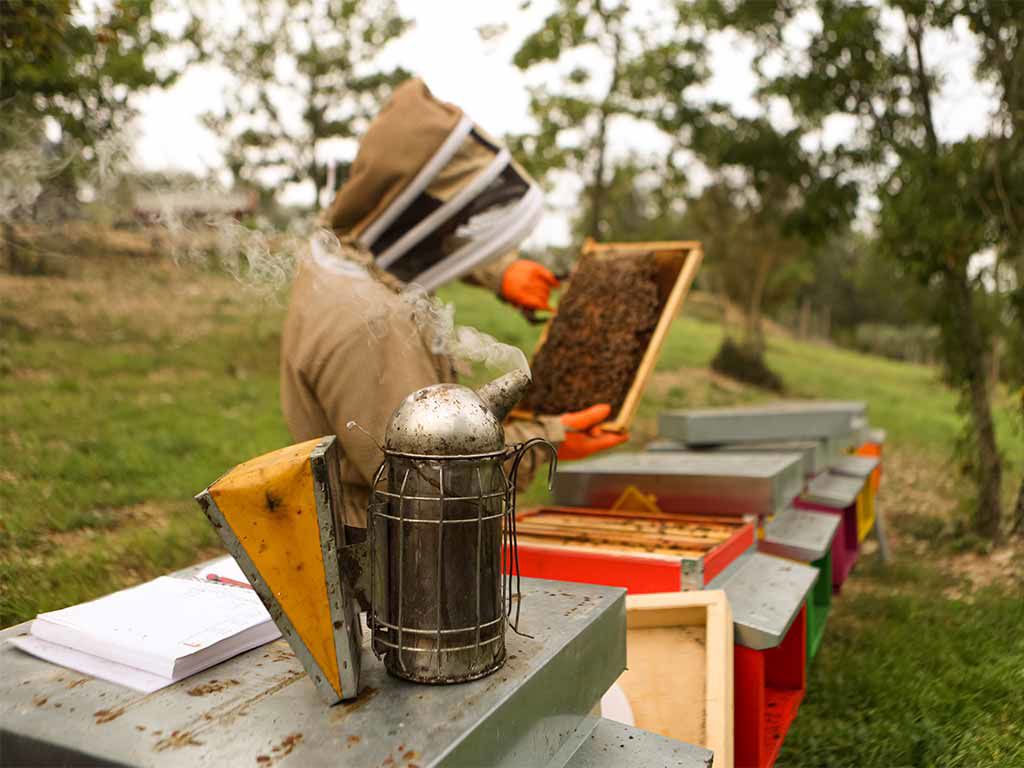We apply the principles of reasoned and respectful production of the ecosystem that surrounds us. For us, this commitment is expressed in various directions that are not limited to organic viticulture.

A heritage of over 1000 hectares to preserve and develop. At Castello di Meleto, environmental sustainability has long been a priority. Our goal is to respect the surrounding environment and preserve it for future generations.

Castello di Meleto is the symbol of Gaiole in Chianti, one of the highest municipalities within the denomination. Castello di Meleto has been the guardian of the territory in Gaiole in Chianti since 1256 and extends over an area of 1000 hectares, more than 700 of which are forested. The vastness of the estate, with its olive groves, forests, vineyards, and beehives, is a treasure that the company has always been committed to preserving, with projects aimed at protecting and promoting biodiversity. Thanks to dedication and hard work, starting from 2020, Meleto has become part of the Chianti Biodistrict, an area where producers, operators, and public administrations work together for the sustainable management of resources, starting from the organic model of production and consumption. The management has therefore decided to use only environmentally friendly processes, employing new technologies such as sensors and monitoring systems in the vineyards to obtain and communicate real-time data, as well as to prevent plant diseases and intervene immediately, avoiding the use of synthetic chemicals such as fertilizers, pesticides, and herbicides. To achieve the set goals, we have utilized the surrounding forest, approximately 700 hectares, significantly reducing carbon dioxide emissions in the production cycle. Each hectare removes nine tons of CO2 annually, resulting in approximately 7,000 tons of carbon dioxide eliminated, equivalent to around 2,200 intercontinental round-trip flights from London to Los Angeles. In addition to air purification, the forest helps preserve the ecosystem, protecting animals and plants that would otherwise be at risk of extinction, thus safeguarding the balance of the vineyard.

More than focusing on size in viticulture, the emphasis is on identity. The grapes, exclusively handpicked, are kept separate by plot, to the extent that up to 100 different wines are produced. The maximum possible vineyard selections are being increased, resulting in over 70 parcel-based microvinifications and micro-areas, with fermentations in steel tanks, cement vats, and pen tonneaux, along with some small-scale experiments involving extended macerations on the stems.

The healthy environment is confirmed by beekeeping activities, with the bee population growing to 80 hives, producing excellent organic honey. Bees are particularly sensitive to pollution. In response to the decline in bee populations, which are vital for biodiversity and agriculture, Castello di Meleto initiated the "In the Name of the Bee" initiative in 2020. This initiative allows those who share the company's philosophy to "adopt" a beehive with the goal of promoting bee repopulation in the area.

Always attentive to practicing innovative organic farming, the vineyards of Castello di Meleto are fully mapped by the Netsens system, which combines wireless technology and IoT (Internet of Things) to analyze each individual row of the 130 hectares of owned vineyard. A combination of weather stations and dozens of wireless sensors placed throughout the vineyard allows data collection, processing, analysis, and storage through the network.